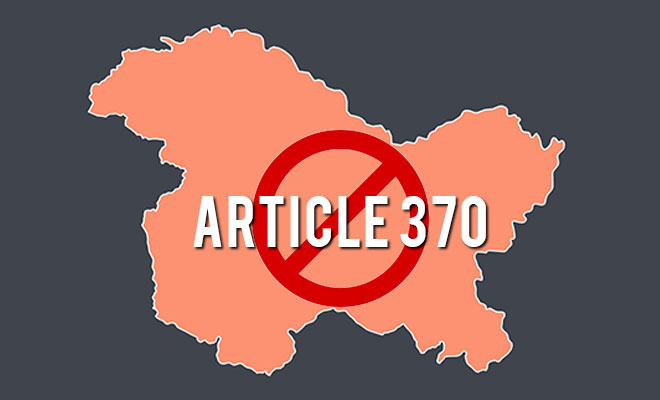KOLKATA: The nephew of Bharatiya Jana Sangh founder Syama Prasad Mookerjee said on Tuesday that the provisions of Article 370 of the Constitution was “promoting disharmony” among the people and needed to be changed.
Expressing happiness at the scrapping of provisions of Article 370 that accorded special status to Jammu and Kashmir, Justice (retired) Chittatosh Mookerjee said his uncle had died for this cause and it should have happened long ago.
“Separate provisions of Article 370 is promoting and harbouring disharmony among people. So it was necessary to change it,” Mookerjee said here.
The 90-year-old said the special provisions were “largely responsible” for terrorism and separatist activities in Jammu and Kashmir.
The Centre had on Monday revoked provisions of Article 370 to take away Jammu and Kashmir’s special status, and proposed the bifurcation of the state into two Union territories—Jammu and Kashmir, and Ladakh.
Mookerjee, a former chief justice of the Calcutta High Court and the Bombay High Court, claimed that the abolition of the provisions of Article 370 was not illegal or unconstitutional.
“This (Article 370) is a temporary provision. It appears in a part of the Constitution, but is not permanent,” he said.
“There is no breach of the Constitution; could be a breach of a promise which might have been made by Pandit Jawaharlal Nehru (the first prime minister),” he said.
Mookerjee said circumstances had changed that necessitated making Indian laws applicable in Jammu and Kashmir, but added that whether it was the appropriate time to do so is entirely a matter of opinion.
“Those who are in BJP, at least they could decide, whether the decision is right or not is a matter of opinion,” he said. “They decide their way, they take the responsibility.”
Mookerjee said Jammu and Kashmir acceded to India during a challenging situation, and under “peculiar” circumstances, these provisions came into the Constitution.
The legal luminary said he was residing with Syama Prasad Mookerjee in Delhi when the latter had decided to take up the cause against the provisions of Article 370 that gave Jammu and Kashmir a special status.
Syama Prasad Mookerjee had subsequently resigned from the Nehru cabinet and formed the Bharatiya Jana Sangh, the precursor of the present-day Bharatiya Janata Party (BJP).
Citing former prime minister Indira Gandhi’s decision to abolish privy purses to princely states, that acceded to India following Independence, Justice (retd) Mookerjee said because the provision was in the Instrument of Accession, it did not mean that it cannot be changed.
“The Instrument of Accession of all the native states, nearly 600 of them, provided payment of privy purses, which Indira Gandhi had abolished in 1971,” he said.
“The abolition of privy purses was challenged before the Supreme Court and the matter was lost. So nothing in the Instrument of Accession is sacrosanct in that way,” he said. (AGENCIES)


